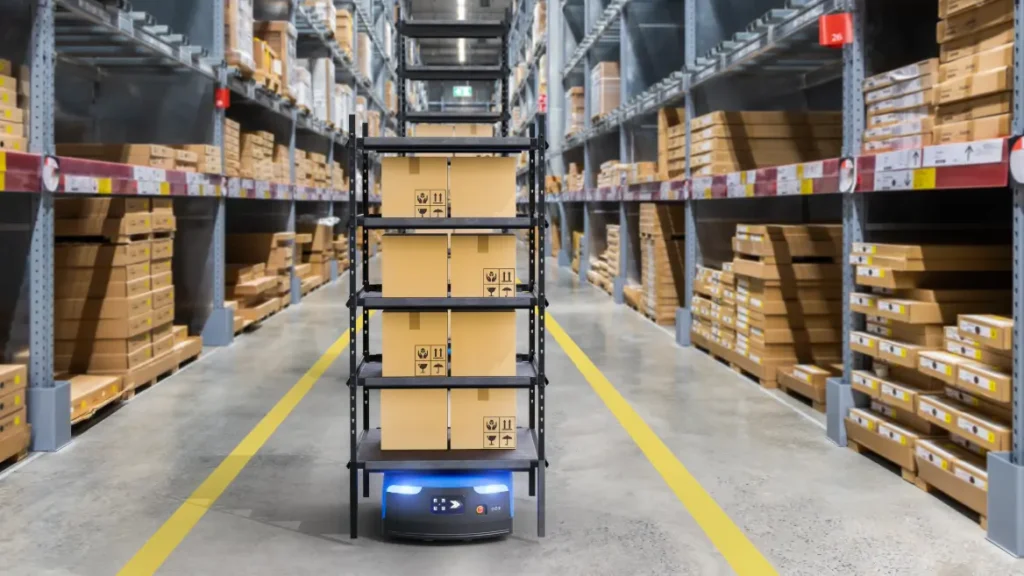Logistics is the backbone of global trade, making sure goods move efficiently from manufacturers to consumers. With e-commerce and international supply chains growing fast, the industry offers strong logistics employment opportunities for those seeking stability and long-term career potential.
In this guide, we’ll explore the advantages of a career in logistics, the essential skills you need, and how technology is shaping the future. We’ll also cover common challenges and give practical tips on starting and advancing in this exciting field.
What we’ll cover
Fleets, bookings, subcontractors, compliance & payments.
With HX, you can manage them all in one place.
Key advantages of a career in logistics
A career in logistics comes with many benefits, from job security to global exposure.
Here are some of the top reasons people choose this field.
1. High demand and job security
The demand for logistics professionals continues to rise as supply chains grow more complex. Businesses need experts to manage transportation, warehousing, and delivery services, creating a steady stream of logistics employment opportunities.
This demand spans every level, from entry roles to senior positions in planning and analysis. If you’re considering self-employment, you could even explore starting a haulage company, which is a strong option in the UK market.
2. Excellent salary and growth potential
Logistics roles often come with competitive salaries, especially as you gain experience or move into management.
Entry-level positions in logistics occupations such as warehouse coordination typically start at around £20,000 to £25,000, while senior roles in supply chain management jobs can reach £60,000 or more.
For those who prefer entrepreneurial paths, running a small haulage business can deliver even higher earnings when managed well. The variety of roles means you can tailor your career to suit your ambitions and skills.
3. Global exposure and transferable skills
Logistics is a global industry, so your expertise is valuable worldwide. Many roles involve working with international partners, offering opportunities to travel or collaborate across borders.
The skills you gain in logistics (such as planning, problem-solving, and digital proficiency), transfer easily to other sectors. Whether you start in jobs in logistics or move into consulting, the knowledge remains super marketable.

Essential skills and typical qualifications required
Success in logistics requires a mix of technical and soft skills. While qualifications help, employers often value practical knowledge and adaptability.
Analytical and digital capabilities
Modern logistics careers demand comfort with data analysis and digital tools; from tracking shipments to using inventory software, being tech-savvy can set you apart.
Understanding systems like transport management software and automation platforms is now a requirement for higher-level roles.
Communication and problem-solving skills
Logistics is all about coordination, so clear communication matters. You’ll work with drivers, warehouse teams, and customers to keep everything moving smoothly.
Problem-solving is equally important because delays and disruptions happen. Quick thinking helps keep goods on schedule, even under pressure.
Formal education versus apprenticeships
A degree in supply chain or business can be helpful for management positions, but it’s not always required. Many successful professionals start through apprenticeships or industry certifications.
For hands-on roles like freight operations, experience often counts as much as formal education. If you’re interested in freight forwarding, you should investigate how to start a freight forwarding company.
Career options and roles in logistics
There’s no shortage of variety when it comes to logistics employment opportunities. Roles include warehouse supervisors, transport planners, freight coordinators, and specialists in customs and compliance.
Entry-level positions often include dispatch assistants, supply chain clerks, and stock controllers, which provide great pathways into the industry. These roles usually require GCSEs or equivalent and can grow into higher-paid positions with experience.
Higher-level positions in supply chain management jobs involve strategy, analytics, and global planning. For example, transport managers and procurement specialists often command salaries between £40,000 and £70,000, depending on experience.
Drivers and owner-operators also play a huge part in logistics. There are consistent openings in haulage, courier companies, and HGV transport.
If you’re entrepreneurial, owning a fleet or offering services as freight forwarders can be both lucrative and flexible.

Impact of modern technology on logistics jobs
Technology is reshaping logistics occupations and creating demand for new skills. Here are some major trends.
Here are some examples.
Automation and process digitisation
Automation in warehouses and robotic picking systems is now common. These technologies reduce errors and speed up operations, but they also create roles in maintenance, programming, and systems oversight.
Digitisation streamlines scheduling, routing, and resource allocation. Professionals who understand how to use these tools can quickly move into senior positions.

Data analytics, IoT and industry innovation
IoT sensors provide real-time visibility, tracking everything from location to temperature for cold chain logistics. This data feeds into predictive analytics systems that anticipate delays before they happen.
Blockchain is also gaining traction for improving transparency, while digital twins allow companies to simulate supply chain changes virtually before making real-world adjustments. These innovations have boosted the demand for tech-savvy candidates in logistics careers.
Challenges in logistics careers and how to address them
While logistics offers great rewards, it’s not without challenges. Here are some common issues and solutions:
- High-pressure environments: Use planning tools and time management strategies to handle tight deadlines.
- Complex compliance rules: Stay updated with training on customs and transport regulations.
- Cybersecurity risks: Protect your business with the right cover, such as haulage business cyber insurance.
Safety concerns for drivers: Invest in training and suitable truck and HGV insurance to manage risks effectively.
How to begin and advance in logistics
Starting and growing in logistics takes planning and the right approach. Here are four practical steps to help you succeed:
- Start with entry-level roles: Look for positions in warehousing, transport planning, or administration to gain practical experience. These roles often lead to supervisory positions within a few years.
- Get certified: Consider supply chain certifications, HGV training, or freight forwarding courses to strengthen your CV. These credentials open doors to more jobs in logistics and management roles.
- Explore self-employment opportunities: If you want independence, look into small haulage business ownership or use digital platforms to connect with clients. This route gives flexibility and room for growth.
- Network within the industry: Build relationships with professionals through events, forums, and online platforms. Networking helps you discover opportunities and stay updated on trends like automation and sustainable logistics.
- Stay tech-savvy: Learn how to use transport management systems and tracking tools. Digital skills are increasingly important as technology reshapes logistics careers.
FAQs about logistics careers
Is logistics a good career field?
Yes, logistics offers strong job security and growth opportunities. The industry is essential to global trade and e-commerce, making it a reliable career path.
What is the main benefit of logistics?
The biggest benefit of logistics careers is stability, as logistics underpins almost every industry. It also offers competitive salaries and a wide range of roles to suit different skill sets.
How to answer “why are you interested in logistics?”
Mention your interest in problem-solving, organisation, and working in a fast-paced environment. Highlight your enthusiasm for technology and global business trends.




